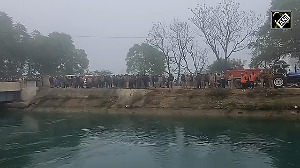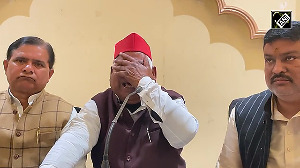Questioning Musharraf's assertions that there was no need to form a commission on Kargil because it was a thing of the past, a spokesman of former Premier Benazir Bhutto's party said the issue "would not, indeed should not, die down because it had brought to the fore some very serious questions about war and peace."
"When the sitting prime minister and the serving army chief disagree so fundamentally on who said what, it raises questions about the breakdown of communication between the civil and military leadership," Farhatullah Babar said.
"Such a communication breakdown can be disastrous when the issue at stake is that of war and peace and the countries involved are nuclear armed. Who takes the ultimate decision of taking the country to war and who decides the ceasefire is a question that can be ignored at grave peril in the future," he said.
The opposition leader said Musharraf's refusal to form a commission to probe the Kargil debacle was self serving and untenable.
Babar said Musharraf had insisted that Kargil plan was a marvel of a military strategy. "This raises the question whether a nation should be taken to war merely on the basis of optimism about field tactics or war and peace must be decided on consideration of wider issues of international diplomacy and politics," he said.
"It was most regrettable that General Musharraf speaks on Kargil as if he had the last word of truth and wisdom on it," he said adding former chief of general staff Lt-Gen Ali Quli Khan Khattak had publicly said Kargil was an "unprofessional decision" and that "critical questions had to be answered for sacrificing so many soldiers."
"In view of the conflicting assessments given by both the political leadership as well as sections of the military leadership, it is imperative that an inquiry commission is set up to probe Kargil," he said.






 © 2025
© 2025